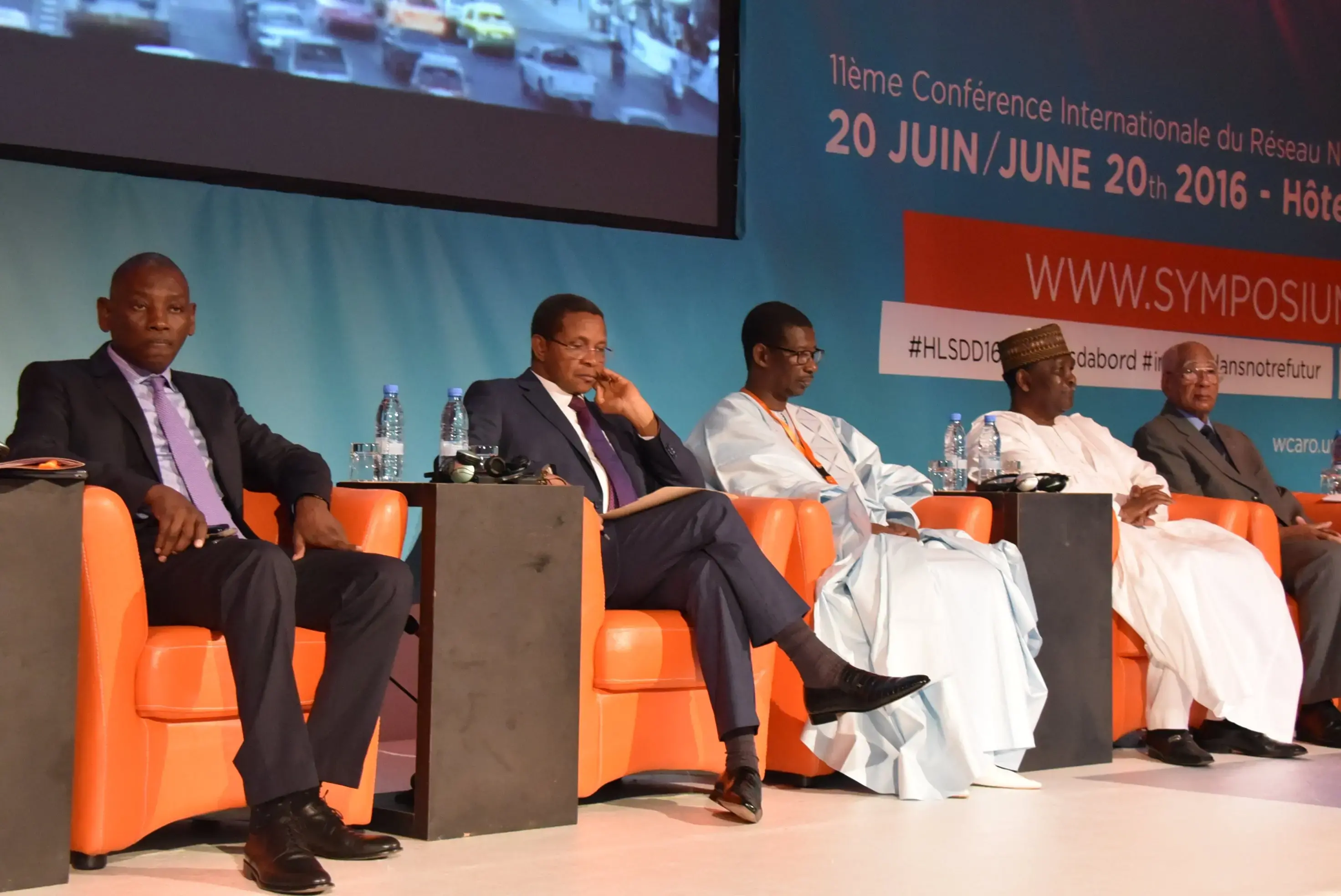Dakar (Senegal): “We need to enhance UNFPA’s humanitarian response in the Central African Republic (CAR) and the surrounding countries in a more coordinated manner and set up new approaches that foster a close collaboration among the countries represented, which are the main destinations of forced relocation for either refugees or returnees”, declared Mr Benoit Kalasa, the Regional Director for West and Central Africa.
He called on participants to think differently and emphasized “the need to be flexible, adaptable and innovative in our approach”.
Mr Kalasa made the statement at a two-day strategic consultation held from 16th to 17th June in Dakar, Senegal on the crisis in CAR aimed at scaling up UNFPA’s programmatic and humanitarian response to the unfolding tragedy.
The meeting brought together staff from the Regional Office, representatives from the country offices of Kenya (ESARO), Congo, Cameroon, Chad, DR Congo and CAR. All these countries are affected by the crisis as they are receiving refugees or returnees from CAR.
UNFPA Regional Office, convinced that partnership is needed for an efficient response to the crisis invited to the consultation partners key amongst them being ECCAS (Economic Community of Central Africa States), represented by its Deputy Secretary General, Dr. Crispin Rondo, the International Federation of Red Cross and Red Crescent Societies, through the Africa Zone Director, Mr Alassane Senghore and OCH A (United Nations Office for the Coordination of Humanitarian Affairs Office), Dakar Regional Office.
ECCAS Secretary General, Dr. Crispin Rondo welcomed UNFPA’s initiative of involving key partners in the response including his organization.
He emphasized the need to harmonise the humanitarian policies in member states for the ECCAS to better coordinate and respond effectively when natural or manmade crises occur not only in a given country but also when the crisis takes a regional scope like is the case with CAR.
During the two-day meeting, representatives from the different countries shared experience on UNFPA’s current response to the crisis, highlighting the strengths, constraints and the areas of potential improvement.
“We have a moral obligation to meet the urgent and pressing needs of the women, our key rights holders, and we have to make sure that this action plan is fully implemented for their well being”, Mr Kalasa said at the closing.
For his part, the IFRC Africa zone director covering 49 Sub-Saharan countries, Mr. Alassane Senghore, underlined that more concerted efforts are needed among governments and all humanitarian parties to address the various types of humanitarian crises at hand in the West and Central Africa region.
All participants emphasized the need for peace in CAR as well as addressing the root causes of the crisis.
|
An action plan to scale up UNFPA response to the CAR crisis A key action plan addressing the challenges to overcome in order to scale up the response was developed at the end of the strategic consultation. Six main areas in which to increase coordination for a better response have been identified, namely response and accountability, data collection, human resource, partnership and resource mobilization, communication, commodity supply and logistics. The regional office will coordinate the humanitarian response of the organization while working in close collaboration with country offices, other UN agencies and the ECCAS. This will enable a regional overview, monitoring through the creation of a regional database with key humanitarian indicators, and realities of beneficiaries in each country will be taken into consideration in the response. |
As of June 10th, 2014, the population of internally displaced persons (IDP) in Bangui was estimated at 126,600 in 44 sites with another 425,000 outside the capital city for an overall total of 551,600 IDPs countrywide. Some 2.5 million people (half of the total population) are considered in need of immediate humanitarian assistance and the maternal health of close to 60% of women is in jeopardy.
Since the outbreak of the crisis UNFPA has been at the forefront to provide strategic and timely in CAR. Using the adapted 100-days as a master plan for its first line response from December 2013 to end of March 2014, UNFPA through its country office was able to provide assistance to affected population first in Bangui and then outside the capital city in three hubs when the security situation allows.
The CAR country office has scaled up its humanitarian response after the first three month. Meanwhile, UNFPA country offices in the surrounding countries (Congo-Brazzaville, Cameroon, DR Congo and Chad) have also established their humanitarian response in order to address the needs of the affected population.
In all countries, UNFPA response to the consequences of the crisis is mostly around the implementation of the minimum initial service package (MISP) for sexual and reproductive health in emergencies which includes maternal health, prevention and response to gender-based violence, at least for its medical and psychosocial aspects. Efforts to collect data that facilitate the programming process are also part of the portfolio.



